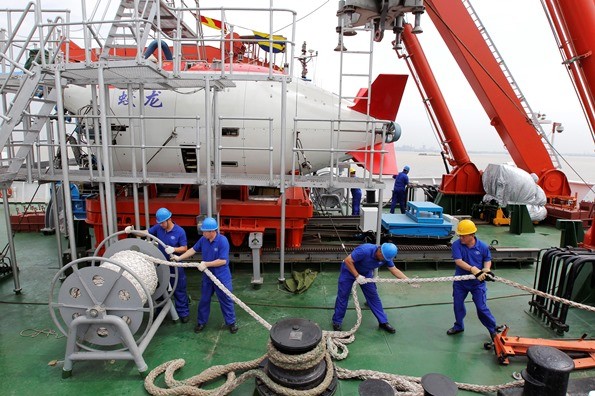Jiaolong, China's deep-sea manned submersible, discovered a "chimney vent" on the seabed of the southwestern Indian Ocean on Saturday, Jan. 13, Shanghai Daily reported.
A "chimney vent," known as hydrothermal sulfide in the scientific community, is a kind of seabed deposit containing copper, zinc and precious metals such as gold and silver. After chemical reactions, these metals formed sulfide and rested on the seabed to form the vent.
According to Li Xiangyang, the mission's assistant chief commander, the vent Jiaolong collected is about 40 centimeters high and 15 centimeters wide.
"This is a perfect chimney vent for biologists and I believe there are lots of microorganisms integrated with it. I am so excited about it," Xiao Xiang, a professor at Shanghai Jiao Tong University, said.
According to Xiao, this "chimney vent" is important for studying organisms in hydrothermal areas which live in a completely dark world with rank poison, high temperature and high pressure. The genes of these organisms have great economic and scientific value, he added.
Xiao also emphasized that the study of microorganisms is the basis of researching ecosystem in hydrothermal areas, as microorganisms are nutrition resources of advanced organisms.
Meanwhile, Tang Jialing, who piloted Jialong in the dive, said that the temperature of hydrothermal fluid flowing out of the collected "chimney vent" is 145 degrees Celsius.
Aside from the "chimney vent" Jiaolong also gathered 39 kilograms of basalt, 4.7 kilograms of sulfide, 37 mussels and 32 spiral shells.
Jiaolong will have a four-month mission during which it is expected to take 20 dives.



























